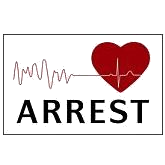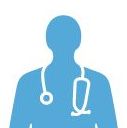ARREST (AmsteRdam REsuscitation STudies) studies out-of-hospital cardiac arrests in the province of North-Holland in the Netherlands.
In the Netherlands, 30.000 people have a sudden cardiac arrest each year, and approximately 8.000 out-of-hospital resuscitation attempts take place. Around 15 people die every day as a result of a cardiac arrest. Therefore, investigating which factors increase the risk of a cardiac arrest and studying how resuscitation attempts outside hospital are performed is very important.
The ARREST study is an ongoing prospective registry of all resuscitation attempts in the province of North Holland: an area of 2.9 million inhabitants. To this end ARREST cooperates with all ambulance services, dispatch centers and hospitals in the study regions, and collects data from police, fire fighters and lay persons to analyse the first response to a sudden cardiac arrest, including the effective use of automated external defibrillators (AEDs). ARREST records characteristics of out-of-hospital resuscitation attempts and studies risk factors of sudden cardiac arrest. The aim of the registry is to determine which factors matter most when it comes to patient survival, and to see where there are possibilities for improvement in the chain of survival.
Current research: Risk factors
Why does one person have a cardiac arrest whereas another person does not? ARREST studies which combination of risk factors can lead to the occurrence of a sudden cardiac arrest. We study the role of diseases and hereditary factors, but also the use of medication and environmental factors.
Income differences in sudden cardiac arrest prevention and survival
Cardiovascular diseases are related to income, educational level and occupational level: the higher the socio-economic status, the lower the risk at cardiovascular diseases. The same may apply for sudden cardiac arrest. Previous research in other countries shows that lower income and lower educational level are related to a higher chance at a sudden cardiac arrest and a lower chance of surviving one. However, it is unclear whether these differences exist in the Netherlands and how these differences come about. The ARREST study will explore the sources of income, income differences and capital differences, and their influence on sudden cardiac arrest by creating a link between the ARREST register and Statistics Netherlands (the ‘Central Bureau for Statistics’ (CBS)).
Genetic Factors Predisposing to Sudden Cardiac Arrest
Most deaths due to cardiac arrest are in older adults, particularly those with coronary artery disease. However, sudden cardiac arrest also affects the young. Understanding the genetic predisposition to sudden cardiac arrest is of utmost importance for its prevention in both the young and old. Identification of genetic factors that predispose an individual to sudden cardiac arrest is essential as it allows for specifically designed genetic testing that may contribute to faster and more efficient diagnosis and risk stratification in affected individuals.
Within the ARREST project we aim to discover which genetic factors predispose an individual to sudden cardiac arrest. To identify genetic factors that contribute to risk of sudden cardiac arrest we conduct genome wide association study (GWAS) that investigate the role of common genetic variants. Future work will also include other genetic analysis techniques such as WGS and WES (Whole Genome/Exome Sequencing). With these studies, we investigate the role of rare genetic variants. We especially hope to learn more about sudden cardiac arrest in younger individuals by doing this.
Drug use
For some people non-cardiac drugs can cause a higher risk at sudden cardiac arrest. These drugs are listed on the website www.brugadadrugs.org. The collaboration with the ESCAPE-NET project has allowed us to systematically analyze the risk of various drug types on the occurrence of sudden cardiac arrest. The results of this research will be used to develop strategies for the safe use of these drugs, which aim to reduce the risk at sudden cardiac arrest.
Current research: Resuscitation characteristics
Best location for an AED
ARREST collaborates with the University of Twente to determine the best locations for installing new AEDs by using data on resuscitation locations. The researchers of the University of Twente are using mathematical modelling techniques. With the results we hope to improve the response time and with it the survival rate of sudden cardiac arrest.
The role of citizen responders
In the event of an out-of-hospital cardiac arrest not only emergency medical services, but also the police, fire brigade and citizen responders are alerted. Since 2009 ARREST studies the effect of a citizen responder system in the province Noord-Holland and the region Twente. This research shows that alerting citizen responders increases the chance of survival by approximately 50%! Nowadays there is a nationwide citizen responder system in the Netherlands: HartslagNu. Together with HartslagNu, ARREST is investigating how this system can be designed even more effectively to further increase the chance of survival.
Other research
Sex and gender differences in out-of-hospital cardiac arrests
Within cardiovascular research more and more research focuses on sex and gender differences. However, research on these differences in out-of-hospital cardiac arrests (OHCA) is limited. It seems that an OHCA is more common in men, yet women have a lower survival rate after an OHCA. Within the ARREST project we focus on differences between men and women in various stages of an OHCA. Sex differences (biological) as well as gender differences (social and cultural) in for example short-term and long-term survival will be explored. Another focus within this project lies on the survivors: what is happening to them? Are they able to work again, and how about their quality of life? Eventually, the aim of this project is to diminish health differences between men and women.
Detection of sudden cardiac arrest by a smartwatch
A patient with an out-of-hospital cardiac arrest (OHCA) is dependent on the help of others. Someone has to witness the OHCA and alert 112 in order to get help as soon as possible. However, approximately 40% of all OHCAs are unwitnessed. Help almost always comes too late for these patients. Within the BECA-project (BEating Cardiac Arrest) ARREST collaborates with the Technical University Eindhoven, Philips, University of Tilburg and the company Stan to work towards a solution for this problem: developing a smartwatch which can detect a sudden cardiac arrest and autonomously alert the emergency (medical) services. To increase the chance of adoption by a broad range of users, the technical, clinical, psychological, and ethical aspects will be investigated.
Collaborations
ESCAPE-NET
From January 2017 till January 2023 we officially work together with other sudden cardiac arrest research groups in Europe, in the ESCAPE-NET project: European Sudden Cardiac Arrest Network - Towards Prevention, Education and New Effective Treatment, supported by the EU. In this project, international experts with different backgrounds work together share their data, knowledge and expertise. See this website for more information.

PARQ COST Action
The PARQ project (from October 2020 till October 2024) is another international project in which we also, supported by the EU, work together with other European research groups. The project stands for: 'Sudden cardiac arrest prediction and resuscitation network: Improving the quality of care". With PARQ we aim to expand the network of international sudden cardiac arrest researchers further. With this collaboration, research on causes of sudden cardiac arrest and its treatment could be improved.
See the website of PARQ COST Action for more information.
Recognizing Sudden Cardiac Arrest Vulnerability in Diabetes (RESCUED)
The RESCUED project is designed to study the combination of factors which lead to an out-of-hospital (sudden) cardiac arrest (OHCA) in diabetes patients. The role of previous symptoms and diseases, metabolic status and genetic predisposition will be explored. The focus on diabetes patients originates in the fact that diabetes patients have a 2-3 fold increased risk for an OHCA. Moreover, they are regularly seen in the general practitioners (GP) practice, resulting in extensive GP medical history files. For this research ARREST data and data of the Diabetes Care System (DCS) will be combined. The Diabetes Care System was set-up as a sequel of the Hoorn Studies. This study aims to gain insight on the incidence and prevalence of diabetes and what it entails to be a diabetic.

Team
| J.L. van Schuppen, MD, PhD | Anaesthesiologist, Project leader Resuscitation Research |
| H.L. Tan, MD, PhD | Cardiologist, Project leader Risk at Sudden Cardiac Arrest |
| R.W. Koster, MD, PhD | Cardiologist, founder, advisor |
| C. van der Werf, MD, PhD | Cardiologist, post-doc |
| Prof. P.R. Schober, MD, PhD | Professor of anesthesiology, anaesthesiologist, statistician |
| M.M. Schwarte-Ekkel, MSc | Research coördinator |
| R. Stieglis, MSc | Datacoördinator, PhD Student |
| V.G.M. van Eeden MSc | Datamanager |
| R. Kalk, MSc | Datamanager |
| E.C. Linssen | MSc Datamanager |
| B.J. Verkaik, MD | PhD Student, physician |
| J. van der Laan | MSc Researcher |
| J.A. van Eijk, MD | PhD Student, physician |
| M. Bak, MSc, PhD | Post-doc |
| L.C. Doeleman, MD | PhD Student, physician |
| D.S. Zimmerman, MSc | PhD Student |
| C. Bouchnaf | Researcher |
| W.A.J.J. Willems, MSc | Research assistent, physician |
| N.F. Alibux | Research assistent |

